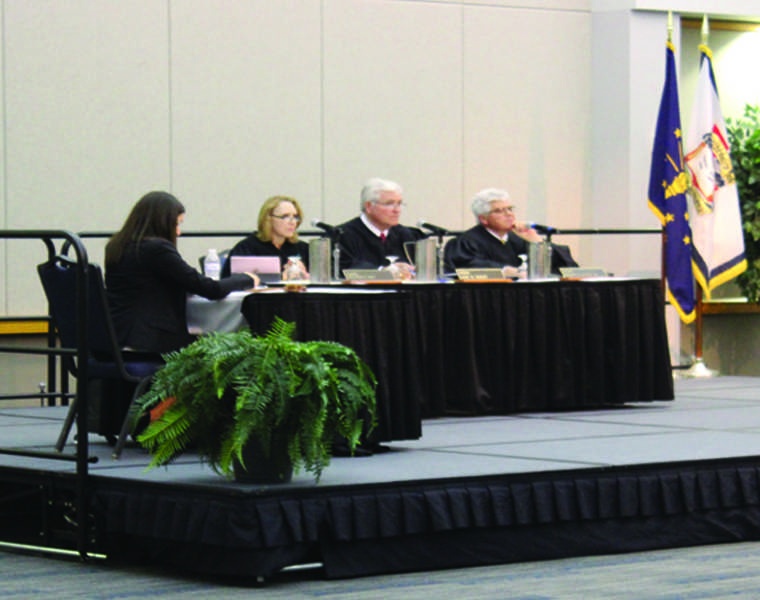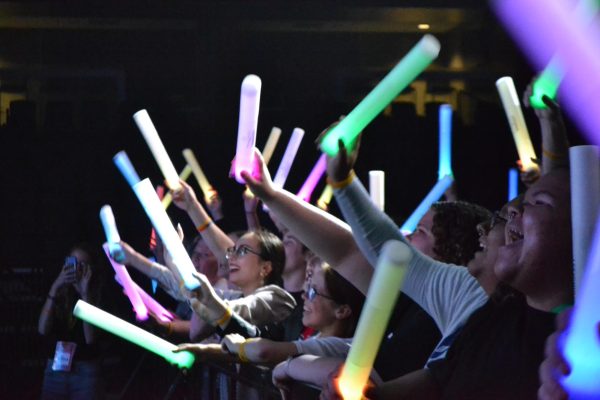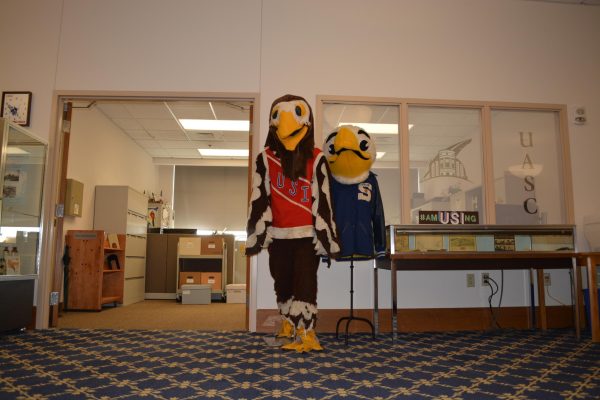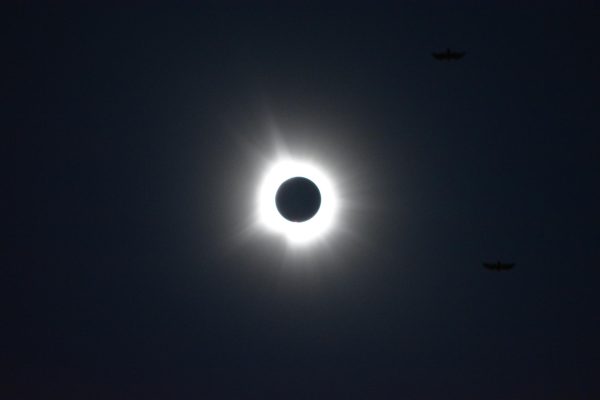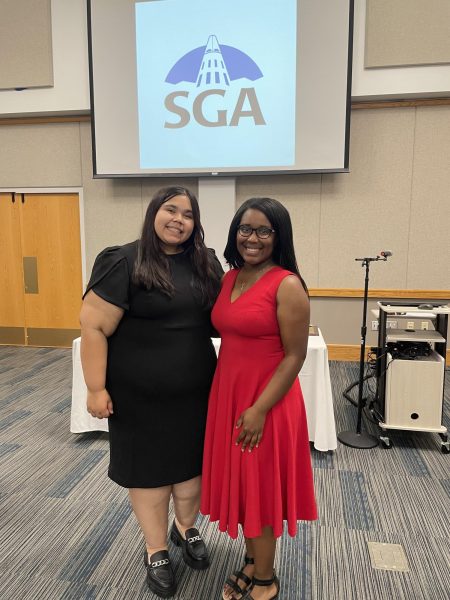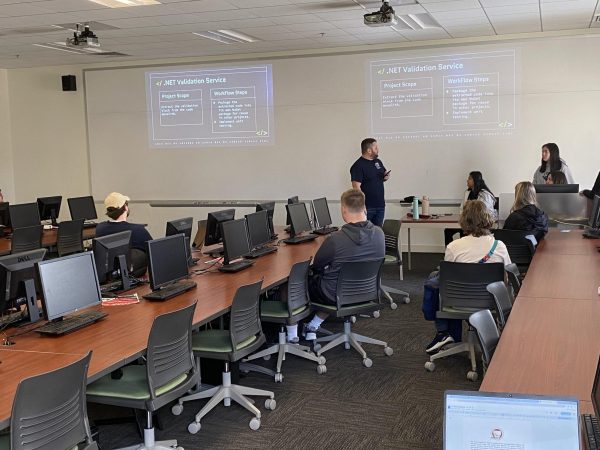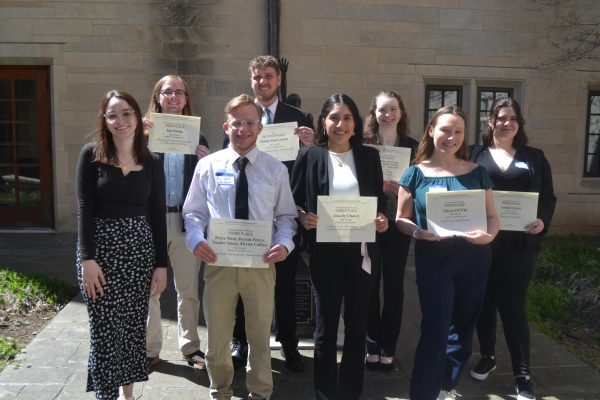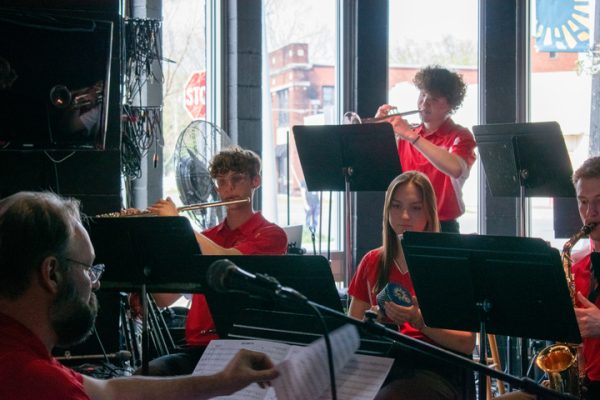Law Day speaker reflects on Scalia’s impact, health
The Court of Appeals of Indiana listen to oral arguments in the case of Melvin Wolfe v. State during the seventh annual Law Day March 29, in Carter Hall. The case concerns a dispute over a battery charge, where Wolfe claimed self-defense in a bench trial. Law Day also featured keynote speaker Dr. Stephen L. Wasby.
Since Justice Antonin Scalia’s death in February of last year, the U.S. Supreme Court has been deadlocked 4-4 in several major cases, but that could change soon with the nomination of a new judge.
“He is still very much with us today in context,” Professor emeritus at the University of Albany-SUNY Stephen Wasby said. “What we perceive of him affects what we do now.”
Wasby gave his keynote address “After Scalia, Now What?” in Carter Hall Wednesday night at the university’s seventh annual Law Day.
He spoke about Scalia’s impact both outside and inside the court during his time as a Supreme Court Justice.
“Within the court he was a son of a bitch,” he said. “He continually wrote opinions about other justices opinions on a case, even his fellow conservatives.”
Scalia’s death left the Supreme Court with four liberal and four conservative justices, meaning many cases would go undecided unless one of the justices decided to break from their ideology.
Wasby, who said he is a democrat, said Scalia was unpredictable, which makes President Donald Trump’s claim to nominate a judge “just like Scalia” all the more difficult.
“He could have been the leader of the conservatives on the supreme court but he wasn’t because of his lack of restraint,” he said.
Wasby also argued that justices health should be properly vetted before they are chosen to be on any court.
“People had much more interest in Prince’s cause of death than Scalia’s,” he said.
Junior Business Administration major Charlie Peters attended the speech and she said she thought Scalia was a good justice.
“You always have those far right people and those far left people and he just happened to be the far right one at the time,” she said. “I’m a Republican, so a lot of the stuff I had personal opinions about, but it’s always good to hear two sides to things. I definitely think what he was saying about the current justice system situation is very accurate.”
Judge Neil Gorsuch, who was nominated by President Trump Feb 1, would replace Scalia if he is confirmed by the Senate.
Senate Judiciary committee will vote on Gorsuch, an appellate judge from Colorado, on April 3.
Gorsuch will have to fight off opposition from the Democrats, who plan on filibustering his nomination.
“If it was a very far right person that they were voting in, then I would definitely think that they would have some reason to not want to vote him in,” Peters said. “Because he is very middle of the line and because he votes how he believes and not what his party believes, I don’t think they should have much of a problem with him.”
Along with Wasby’s speech, Law Day featured oral arguments heard for the Indiana Court of Appeals in the case of Melvin Wolf v. State.
The case involved a dispute over a battery charge. Wolf claimed self-defense during a bench trial and the court found him guilty and sentenced him to six-months. Wolf argued the State did not refute his self-defence claim, but the State countered by claiming the trial court was presented with sufficient evidence to find him guilty.
“It’s a public relations campaign by the Indiana judicial branch.” They have this program called ‘Appeals on Wheels.’” Law Day organizer Nick LaRowe said. “Each year they hear a bunch of cases around the state and we are one of their annual stops.”
LaRowe said he usually schedules events around the day the court says they are coming to the university.
“I’ve done it each year in the spring since I’ve been here,” he said. “I’ve been here seven years and there has been seven law days.”

